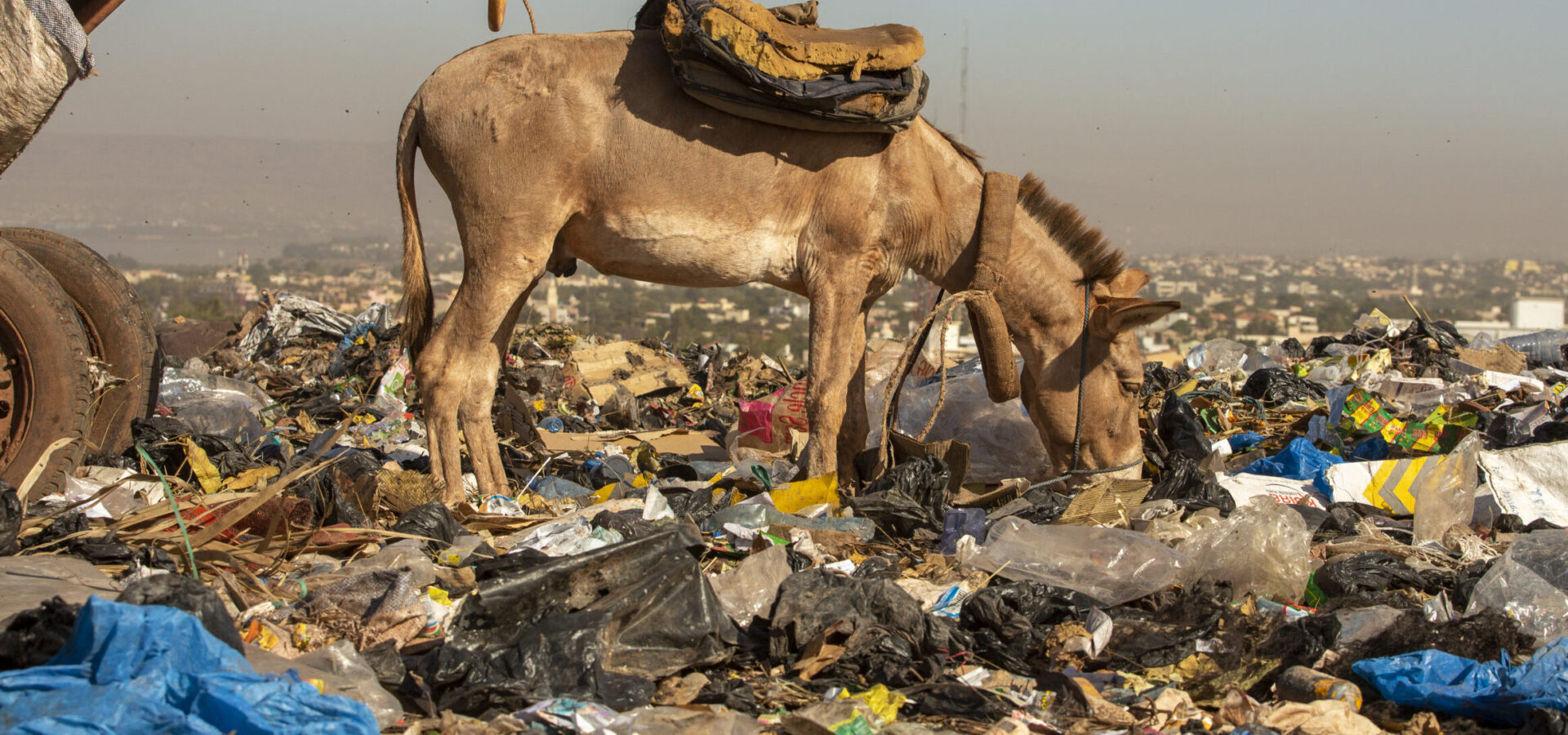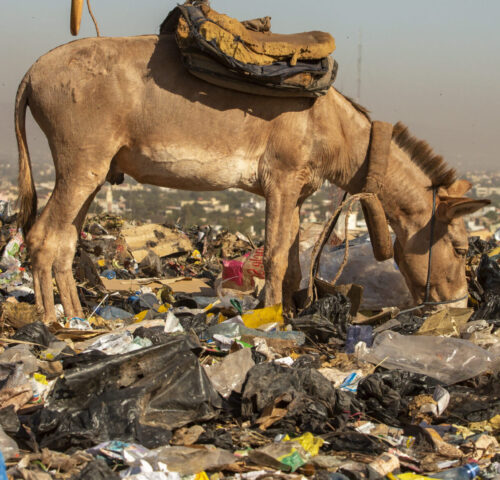What is International Working Animal Day?
SPANA – The Society for the Protection of Animals Aboard is the charity for the working animals of the world.
SPANA’s eighth annual International Working Animal Day, taking place on 15 June 2023, is raising awareness about the growing impact of plastic pollution on working animals in low-income countries across the world.
Plastic pollution is a huge and worsening problem for working animals in vulnerable communities, and is threatening the health and survival of many animals globally.
In many low-income countries, waste is often not collected or disposed of properly, leaving discarded plastic and hazardous materials littering communities. Grazing working animals can all too easily consume plastic by accident – with devastating consequences. Plastic can fill a stomach, leaving working animals unable to eat. This can, in turn, lead to malnutrition and even starvation. Ingested plastic can also cause internal blockages and potentially lead to life-threatening colic. Plastic waste is harming many thousands of working animals worldwide each year.
Plastic pollution is one of many environmental problems putting working donkeys, horses, camels, oxen and other working animals at severe risk – alongside climate change, drought and related natural disasters, such as cyclones and flooding. However, the deadly impact these issues have on working animals is often overlooked.
SPANA teams across the world are providing lifesaving care and support to working animals threatened by plastic pollution and environmental crises. Through essential veterinary treatment and surgery, we are able to offer a lifeline to animals in desperate need.
The charity is working to transform the welfare of working animals in a world where animals, people and the environment are respected and thrive.
Did you know...?
SPANA vets delivered lifesaving treatment to 306,412 working animals across the world last year
Colic – a life-threatening condition, which can be caused by eating plastic and foreign objects – is one of the most common problems treated by SPANA vets
Zimbabwe produces 35.84kg of mismanaged plastic waste per person each year, compared to 0.21kg per person in Australia
353 million tonnes of plastic waste were generated globally in 2019. Only 9% of plastic waste is recycled
SPANA provided training in animal care to 89,924 owners last year, including teaching about the dangers of plastic pollution
Around 600 working donkeys are used to transport plastic and other rubbish in Mali’s capital city, Bamako
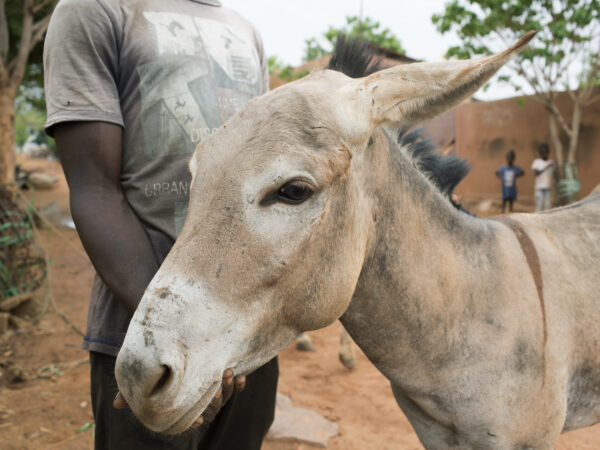
Oxmo’s story
Oxmo the donkey, from Mali, is just one of the many animals affected by the terrible consequences of plastic pollution. After accidentally eating some plastic, Oxmo was in clear pain and distress. Read more about his owner’s quick response and how the SPANA veterinary team ensured that Oxmo received the lifesaving care he needed.
Join SPANA ambassador Jim Broadbent in celebrating this year's International Working Animal Day
Discover more ways to get involved with helping working animals
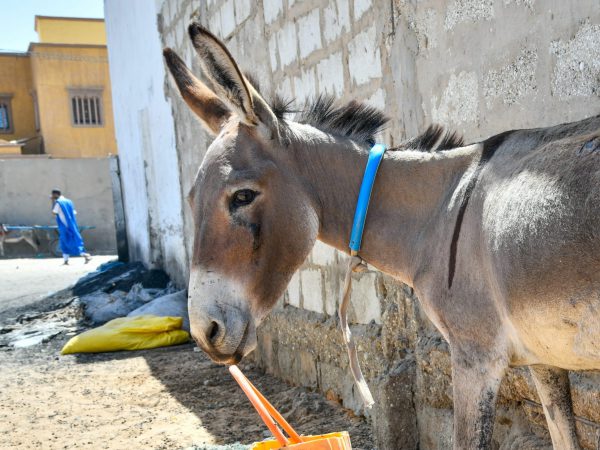
Keera the water donkey’s harness wounds
Keera the donkey was suffering from nasty wounds caused by a problem with the water cart she pulls and needed immediate help from SPANA vets...
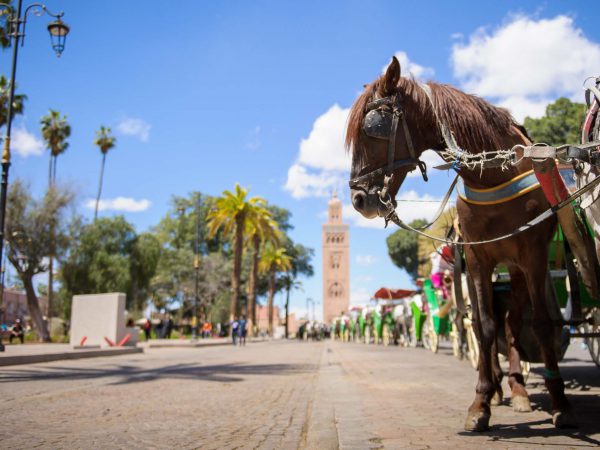
Ethical Animal Tourism
Our Holiday Hooves Guide contains advice on how to choose healthy looking animals for activities abroad.

Keera the water donkey’s harness wounds
Keera the donkey was suffering from nasty wounds caused by a problem with the water cart she pulls and needed immediate help from SPANA vets...

Ethical Animal Tourism
Our Holiday Hooves Guide contains advice on how to choose healthy looking animals for activities abroad.

